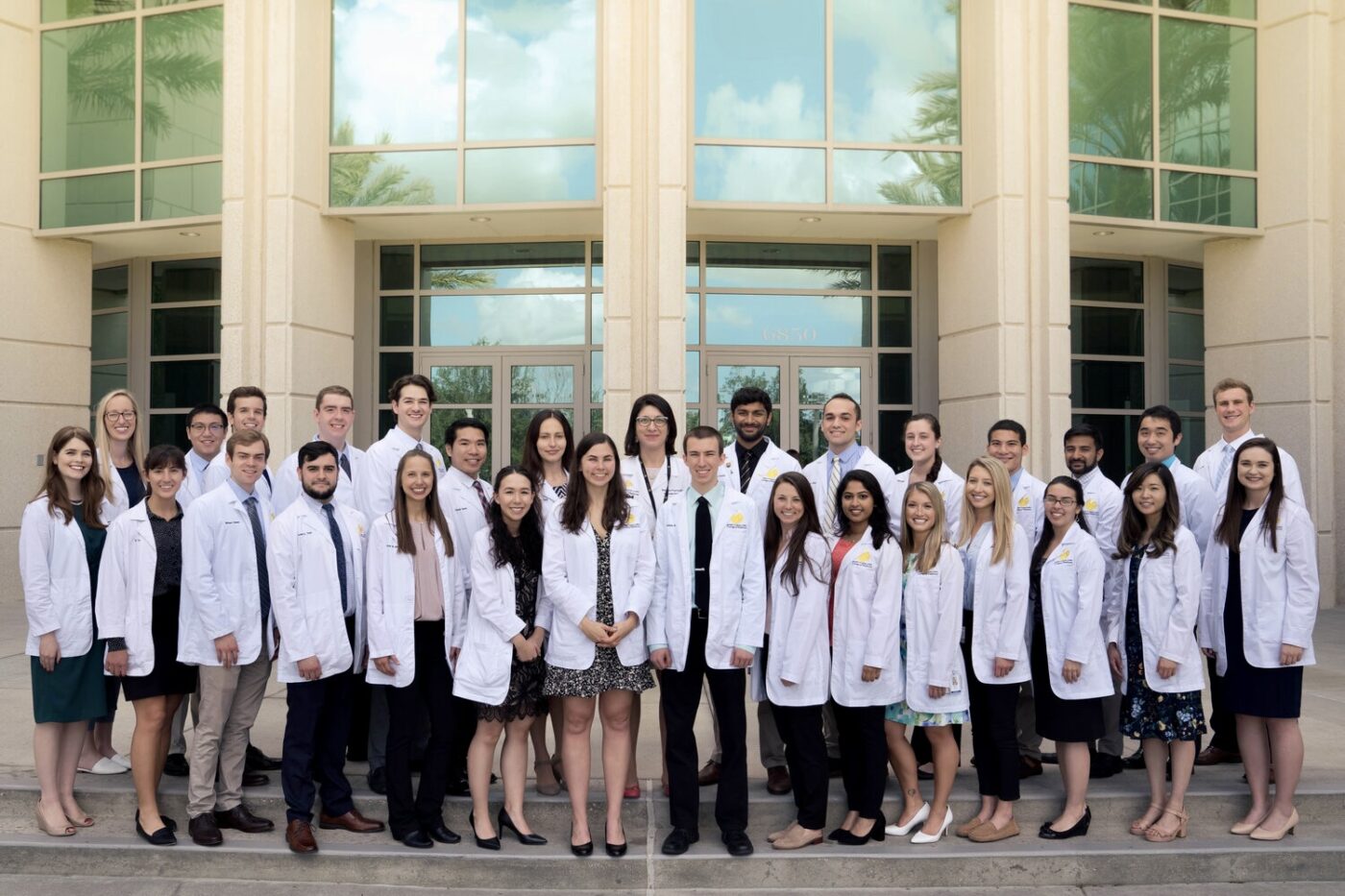For many future doctors, the Medical College Admission Test (MCAT) is a key step on the path to medical school. With high demand for healthcare professionals and increasingly competitive admissions, knowing how the MCAT fits into your application can make a significant difference. At International Medical Aid, we recognize that every applicant has a unique journey—your MCAT score is one piece of the larger picture.
Here, we cover every aspect of the MCAT, including its format, score interpretation, and what schools expect from your performance. We also highlight other critical elements of your application and offer strategies for preparing for this challenging exam. Whether you’re beginning your journey or fine-tuning your application strategy, this guide is designed with your needs in mind.
The MCAT: An Overview
The MCAT is more than a test of memorized facts—it evaluates critical thinking, problem-solving, and the ability to apply scientific concepts in scenarios that mimic real-life medical challenges.
History and Purpose of the MCAT
Developed by the Association of American Medical Colleges (AAMC), the exam has evolved over the years. Originally focused on scientific knowledge, the MCAT now emphasizes reasoning skills and applying scientific principles. This exam helps determine whether candidates possess the skills necessary for success in medical school and as practicing physicians. For more details, visit the AAMC’s MCAT Exam Score Scale article.
Structure of the MCAT Exam
The exam is organized into four main sections:
- Chemical and Physical Foundations of Biological Systems:
Assesses your grasp of the chemical and physical principles behind biological processes. - Critical Analysis and Reasoning Skills (CARS):
Involves analyzing passages on diverse topics to evaluate your comprehension and reasoning abilities. - Biological and Biochemical Foundations of Living Systems:
Focuses on biology and biochemistry with an emphasis on systems relevant to human health. - Psychological, Social, and Biological Foundations of Behavior:
Explores concepts in behavioral and social sciences, highlighting the importance of patient interactions.
Each section measures not only your mastery of content but also your ability to integrate and apply information effectively.
MCAT Score Range: Decoding the Numbers
The MCAT provides a numerical score along with percentiles to give context to your performance.
Sectional Scores: Breakdown and Interpretation
Every section is scored on a scale from 118 to 132, with 125 as the midpoint. This range highlights your strong points and areas that may need improvement. For example:
- A score near 132 in the “Biological and Biochemical Foundations” section signals a strong command of life sciences.
- A lower score in the CARS section might suggest you need additional practice in reading comprehension and analysis.
Total Score: Calculation and Meaning
Your total MCAT score is the sum of the four section scores and ranges from 472 to 528, with 500 as the midpoint. Although individual section scores matter, many admissions committees start with the overall score as an initial indicator.
Percentile Ranks: Comparing Performance
Percentile ranks show how your score compares to those of other test-takers. For instance, a score in the 98th percentile indicates you outperformed 98 percent of candidates. This context is crucial when assessing where you stand on a national scale.
Decoding Your MCAT Score Report
After your exam, your score report provides detailed information on your performance.
Confidence Bands: What They Mean
Each section’s score includes a “confidence band” that shows the likely range of your true performance. Because the MCAT does not offer a pinpoint measurement, these bands reflect a margin of error that gives admissions committees additional context regarding the reliability of your scores.
Interpreting Percentiles and Sectional Scores
A high percentile rank can be just as significant as a high raw score. For example, a total score of 510 accompanied by a top-tier percentile shows that you performed exceptionally well relative to your peers. This information can guide your decision on whether to retake the exam or focus on other aspects of your application.
MCAT Scores Required for Medical School Admissions
Different medical schools have varied expectations regarding MCAT scores. Knowing these differences can help you tailor your application.
Elite Medical Schools and High MCAT Scores
Top institutions such as Johns Hopkins School of Medicine and Harvard Medical School often expect total scores in the 515–528 range, with high scores across all sections. For instance, recent statistics from Johns Hopkins are available on their MD/PhD Program statistics page. At the same time, profiles for the University of Chicago’s Pritzker School of Medicine can be found at Pritzker’s entering class profile. Candidates targeting these schools should aim for scores well above the national average.
Average Scores and Their Implications
Many schools using a holistic review process consider applicants with total scores around 500–510, especially when other parts of the application are substantial. Although a higher MCAT score can improve your chances, a candidate with a slightly lower score may still be competitive if they present a well-rounded application.
Variations Among Medical Schools
Not all programs weigh the MCAT equally. Some emphasize science coursework and standardized test performance, while others focus more on clinical experience, research, or leadership skills. Research the specific criteria for each school to determine whether you need to improve your score or bolster other areas of your application.
Medical School Admissions: Beyond the MCAT
A high MCAT score is one component of your application. Admissions committees review multiple factors when evaluating candidates.
Academic Record and GPA
Your undergraduate GPA is a key indicator of your academic performance. A strong GPA in science courses demonstrates your ability to manage challenging coursework. If your GPA is less competitive, an impressive MCAT score might help balance your application. Conversely, if both areas need improvement, consider additional coursework or post-baccalaureate programs.
Personal Essays and Letters of Recommendation
Your personal essay provides an opportunity to share your journey, motivations, and aspirations in medicine. Compelling letters of recommendation from professors, physicians, or research mentors add depth by highlighting your work ethic, character, and potential.
Extracurricular Activities and Clinical Experience
Admissions committees favor applicants who excel academically and have a history of service, leadership, and clinical involvement. Volunteering, participating in healthcare-related research, and community service are experiences that can differentiate your application. International experiences, such as volunteering abroad, can also be a significant plus.
Interview Performance and Additional Qualities
Once you reach the interview stage, your ability to communicate, show empathy, and convey genuine passion for medicine becomes crucial. Schools seek candidates who can handle both the intellectual and emotional aspects of a medical career.

Effective Strategies for MCAT Preparation
A thoughtful approach to MCAT preparation can make a significant difference in your performance.
Study Resources and Courses
There are many resources available for MCAT preparation. Some options include:
- AAMC Official Materials:
The AAMC provides practice tests, sample questions, and full-length exams that are essential for planning your study schedule. For more details, see the AAMC’s guide on taking the MCAT exam. - Prep Books and Online Courses:
These materials offer comprehensive reviews and practice questions from reputable publishers and online platforms. - Study Groups and Forums:
Collaborating with peers can provide additional insights, motivation, and support.
Practice Exams and Time Management
Taking full-length practice exams under simulated conditions helps you get comfortable with the exam format and identify areas for improvement. Managing your time effectively during these practice sessions is key to allocating enough time for each section.
Managing Test Anxiety and Stress
Test anxiety is a common challenge. Incorporate stress-management techniques such as mindfulness, exercise, and sufficient sleep into your study plan. Simulating exam conditions with timed practice tests can also build confidence and reduce anxiety on test day.
Balancing MCAT Prep with Other Responsibilities
Many candidates juggle MCAT study with coursework, work, or extracurricular activities. Creating a structured study schedule, setting realistic goals, and including regular breaks can help maintain a healthy balance. Consistent effort and perseverance are essential for success.
Application Process for International Students
International applicants face unique challenges when applying to medical schools in the United States or elsewhere. Here are some strategies tailored for you.
Application Process
International students must handle not only the MCAT but also additional requirements such as visa regulations and, in some cases, language proficiency tests. Familiarize yourself with each school’s criteria and contact admissions offices if you need clarification.
Addressing Language Barriers
For those whose first language isn’t English, the Critical Analysis and Reasoning Skills (CARS) section might be particularly challenging. Extra practice through intensive reading, discussion groups, or academic English courses can help build the necessary skills for success.
Financial and Logistical Considerations
Preparing for the MCAT and applying to medical schools involves financial and logistical planning. Explore scholarships, grants, and specialized preparatory programs for international students. Early planning for travel, visa applications, and related logistics is essential for keeping your study schedule on track.
Making Your Medical School Application Stand Out
A strong MCAT score is a significant achievement, but it’s only one aspect of your application. Medical schools seek candidates who combine academic excellence with clinical potential and a clear commitment to patient care.
Strengthening Your Medical School Application Beyond Academics
Academic excellence and a strong MCAT score are critical components of your medical school application. Yet, these elements alone may not fully capture the depth of your potential as a future physician. Admissions committees increasingly emphasize a holistic view, looking closely at your extracurricular experiences, practical involvement in healthcare settings, volunteer service, and research activities. Focusing strategically on these areas can significantly boost your candidacy and differentiate you from other applicants.
Clinical Experiences and Healthcare Internships
Direct patient interaction through clinical experiences profoundly enhances your medical school application. Shadowing physicians, volunteering at local clinics, or participating in healthcare internships clearly indicates your commitment and dedication to the medical profession. These experiences are more than mere additions to your resume. They demonstrate your first-hand understanding of patient care, your ability to work collaboratively in healthcare environments, and your readiness to face the real-life challenges physicians encounter daily.
Programs like those offered by International Medical Aid provide structured, immersive clinical internships that allow aspiring medical students to experience patient care directly. Participating in hospital rotations, engaging with healthcare professionals, and seeing diverse patient populations up close can significantly strengthen your personal statement and interview responses. Admissions committees value applicants who have taken initiative in seeking out these experiences, as they suggest maturity, dedication, and a clear understanding of what a medical career entails.
Volunteer and Community Engagement
Volunteer service remains a cornerstone of a competitive medical school application. Active participation in community service indicates empathy, compassion, and leadership qualities—all of which are essential traits of effective healthcare providers. Medical schools value genuine, impactful volunteer experiences that reflect a candidate’s sincere dedication to serving others.
Volunteering in settings such as local health fairs, community outreach programs, or charitable health initiatives helps demonstrate your ability to engage meaningfully with diverse populations. These experiences do more than simply enhance your resume. They shape your perspective, instill a sense of responsibility, and deepen your understanding of the social factors influencing health. When describing your volunteer experiences, clearly articulate how they have influenced your decision to pursue medicine and your approach to patient care.
The Value of Research Experiences
Participation in research activities can further elevate your medical school application. While traditionally emphasized by schools with robust research programs, virtually all medical schools appreciate candidates who have actively engaged in scholarly inquiry or scientific investigation. Conducting research, whether clinical, laboratory-based, or in public health, highlights critical skills such as analytical thinking, persistence, and problem-solving abilities.
If you have the opportunity, seek involvement in undergraduate research programs, summer research initiatives, or independent study projects. Aim for tangible outcomes from these experiences, such as presentations at academic conferences or publications in respected scientific journals. Even if you don’t achieve publication, the ability to discuss your role clearly, including the methodologies, challenges, and outcomes, demonstrates academic curiosity and a genuine interest in contributing to medical science.
Enhancing Your Soft Skills and Interview Preparation
Medical school admissions increasingly rely on comprehensive interview methods, such as Multiple Mini Interviews (MMIs), to assess interpersonal skills, ethical reasoning, communication abilities, and empathy. These characteristics are crucial in the practice of medicine, as they directly impact patient care and collaboration within healthcare teams.
Preparing for these interviews involves developing robust interpersonal skills and emotional intelligence. Engage in scenarios that require teamwork, conflict resolution, and ethical decision-making. Seek feedback on your communication style and practice clearly articulating your thoughts under pressure. Organizations like International Medical Aid offer guidance specifically tailored to mastering these interviewing formats, providing candidates with strategies and practice sessions designed to boost confidence and performance.
Crafting a Compelling Personal Narrative
A standout medical school application is deeply personal and reflective of your unique experiences and motivations. Admissions committees place significant weight on personal statements and secondary essays, which provide insight into your background, passion for medicine, and readiness for medical training. Your personal narrative should authentically convey why medicine appeals to you, what specific experiences have reinforced your commitment, and how these experiences align with your long-term goals.
Crafting your narrative involves thoughtful reflection on your journey toward medicine. Clearly identify moments that shaped your decision, whether impactful interactions during volunteer work, memorable patient experiences during clinical shadowing, or influential mentors who inspired you. Effective storytelling resonates with admissions committees, demonstrating self-awareness, motivation, and maturity. International Medical Aid provides personalized support to help you develop and refine your narrative, ensuring it accurately represents your strengths and aspirations.
Staying Informed and Proactive
Medical school admissions standards and expectations evolve continually. Maintaining an up-to-date understanding of admissions trends and expectations allows you to prepare proactively. Engage regularly with trusted resources, attend informational sessions provided by institutions like the Association of American Medical Colleges, and actively discuss contemporary issues facing healthcare. Demonstrating awareness and thoughtful perspectives on current healthcare challenges underscores your dedication and readiness for the medical profession.
By thoughtfully enriching your application beyond academic achievements, actively engaging in meaningful clinical and volunteer experiences, participating in research, honing your interpersonal skills, and clearly articulating your unique journey to medicine, you significantly enhance your potential for acceptance into medical school. International Medical Aid remains committed to supporting you at each step, ensuring your application fully showcases your capabilities and readiness for a fulfilling career in medicine.
Leveraging Your MCAT Score
Integrate your MCAT score with other strong components of your application:
- Solid Academic Record:
Your GPA and course performance reflect your academic capabilities. - Compelling Personal Narrative:
Use essays and interviews to share your passion and unique journey in medicine. - Diverse Experiences:
Clinical rotations, research projects, and volunteer work add depth and perspective to your application.
The Value of Admissions Consulting
The medical school application process can be complex. Services like those offered at International Medical Aid provide personalized guidance—from refining your statement to choosing the right schools and planning your MCAT preparation. Our team of experts is here to help you showcase your best self.
Frequently Asked Questions About the MCAT and Medical School Admissions
What is the ideal MCAT score for admission?
There isn’t a one-size-fits-all answer. Elite schools might seek scores above 515–520, while many institutions accept candidates with total scores around 500–510, especially when complemented by other strong application elements.
How does the MCAT compare to GPA in importance?
Both are crucial components. A strong MCAT score can sometimes offset a slightly lower GPA, but a consistent record in both areas provides the best indicator of your potential in medical school.
Can other strengths compensate for a lower MCAT score?
Yes. Admissions committees consider various factors, including clinical experience, personal essays, recommendation letters, and leadership roles, which can help balance a lower score.
How many times can I take the MCAT?
The AAMC allows multiple attempts. Most schools will consider your highest score, so retaking the exam is an option if you feel additional preparation could significantly improve your performance.
What resources are available for MCAT preparation?
Options include:
- AAMC Official Materials: Including practice tests and sample questions. See the AAMC’s guide on taking the MCAT exam.
- Commercial Prep Courses: Offered by various providers.
- Study Groups and Online Forums: For peer support and shared learning.
How can I manage test anxiety?
Create a study plan that includes regular breaks, physical activity, and mindfulness techniques. Practicing under exam-like conditions with timed tests can also help reduce anxiety.
Your Journey to Medical School Starts Here
The journey to becoming a physician is challenging, but with strategic preparation and a well-rounded application, you can significantly boost your chances of success. A strong MCAT score is a critical milestone, yet your academic performance, personal qualities, and professional experiences work together to set you apart.
At International Medical Aid, we are here to help guide you through every stage of the process. Whether you need advice on MCAT preparation, assistance with your application, or guidance on selecting the right medical school, our team is ready to support you. Your dream of a medical career is within reach—start your journey today, and let us be your partner in success.
For additional resources, please visit:
- AAMC: MCAT Exam Score Scale
- AAMC: Taking the MCAT Exam
- Johns Hopkins MD/PhD Program Statistics
- University of Chicago Pritzker School of Medicine Profile
Embrace the challenges ahead, work diligently, and use every resource available to build an application that reflects your passion and potential in medicine.
If you plan to apply for medical school, contact us today for medical school admissions consulting. Getting into medical school is tough — especially with so many other equally qualified applicants. We can help you get the attention of your admissions committee through our personalized medical school admissions consulting. We also offer an array of socially responsible healthcare internships abroad. Contact a Program Advisor today for more information.





